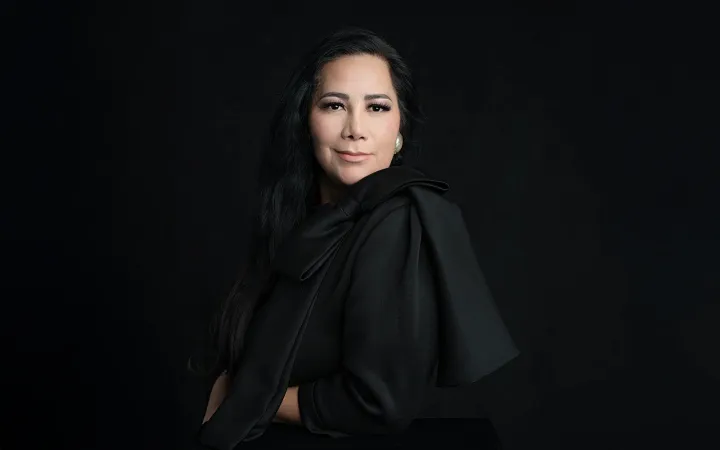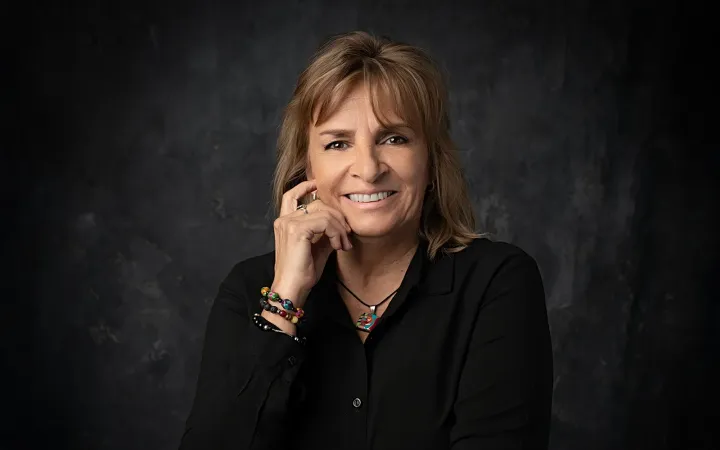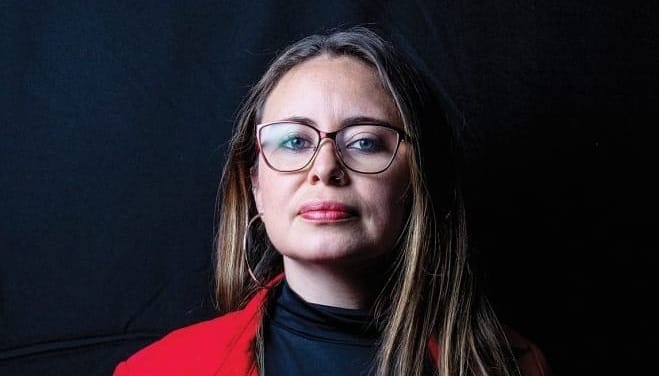
Por Loreley Maldonado, Fundadora y Directora General de Eje Comunicación

¿Qué pasaría si un día pudieras denunciar a tu agresor sin miedo a represalias y consciente de que tu llamado será atendido? ¿Qué pasaría si cuando lo hicieras, en lugar de juzgarte recibieras al menos respeto y quizá hasta apoyo y solidaridad? Seguro que no dudarías en hablar.
Llega a mi mente la imagen de Denisse Dresser, Marcelina Bautista y Pamela Cerdeira, vestidas de negro, con una mano manchada de sangre tapando su boca, evitando que hablen, coartando su derecho a expresarse, obligándolas a quedarse calladas. Esa misma imagen se replica entre otra decena de mujeres agredidas tanto por su vocación como por el simple hecho de haber nacido mujer, entonces dan ganas de gritar: ¡#YaNoMás, #Háblalo!
Parecería que denunciar es sencillo, que hablar es fácil y que enfrentar al agresor no genera ningún tipo de trauma, pero no es así, menos ante las estremecedoras cifras que tiene México en cuanto a la violencia hacia las mujeres: Al día 10 mujeres son asesinadas, según el Secretariado Ejecutivo del Sistema Nacional de Seguridad Pública. De ahí la importancia de no quedarnos calladas.
Más que una campaña de comunicación, #YaNoMás #Háblalo es una denuncia en sí misma creada por Grupo IMU, en coordinación con Eje Comunicación, el Consejo Ciudadano y Opinión 51, la cual ha logrado impactar en la decisión de las mujeres violentadas en México para ya no guardar silencio.
Con la imagen de 15 mujeres mexicanas, políticas, escritoras, sociólogas, periodistas y luchadoras sociales que compartieron sus historias de violencia, se logró, en sólo mes y medio, incrementar 11% las peticiones de apoyo al Consejo Ciudadano para la Seguridad y Justicia de la Ciudad de México. La campaña se pudo observar en 1,944 espacios de mobiliario urbano de Grupo IMU, ubicados en 19 ciudades del país, tanto para los paseantes de a pie, como para los automovilistas.
Gracias a este proyecto, el Consejo Ciudadano para la Seguridad y Justicia de la CDMX ha recibido 1,929 llamadas de apoyo por parte de mujeres víctimas de violencia, 11% más que en 2022. De esas llamadas, 87% fueron de mujeres y en 78.2% de los casos fue la propia víctima quien pidió auxilio.
Y es que la violencia no distingue edades ni género; según datos del propio Consejo Ciudadano para la Seguridad y Justicia, 35% de las mujeres que solicitaron apoyo tienen entre 26 y 40 años, y 64% de los reportes tuvieron origen en la Ciudad de México.
Es preocupante que tanto la CDMX como el Edomex sean las entidades donde la violencia hacia las mujeres se concentra, y lo peor es que se trata de un tema conocido por las autoridades, que siguen dejando impunes a los responsables.
El impacto que se logró con esta campaña de comunicación sobrepasa las expectativas: #YaNoMás #Háblalo tuvo 500 mil impactos en personas a pie y más de 350 mil en vehículos. Cada cartel realizado y expuesto en la vía pública tuvo un código QR en el que las embajadoras, columnistas de Opinión 51, expusieron a través de un podcast su experiencia ante situaciones de violencia.
En definitiva no estamos solas, sabemos lo difícil que es para la mayoría de nosotras contar lo que nos pasó, la violencia de la que hemos sido víctimas, sin embargo, la fuerza la tenemos, las redes de apoyo cada vez son más extensas y, aunque todavía nos cuesta decirlo, ya somos más las que hablamos, las que denunciamos y las que lucharemos porque ninguna se calle nuevamente.
*Loreley Maldonado Razo
Cuenta con más de 20 años de experiencia en la gestión de la reputación corporativa, comunicación estratégica, asuntos públicos y manejo de crisis en México y diversos países de América. Actualmente cursa estudios doctorales en Comunicación y Mercadotecnia Estratégica en la Universidad Anáhuac México. loreley@ejecom.mx
Las opiniones expresadas son responsabilidad de sus autoras y son absolutamente independientes a la postura y línea editorial de Opinión 51.
Más de 150 opiniones a través de 100 columnistas te esperan por menos de un libro al mes.






Comments ()